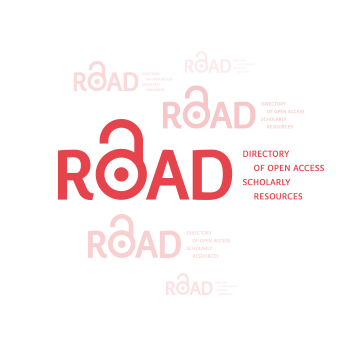Análisis de los Sistemas de Aprendizaje Personalizado Impulsados por Inteligencia Artificial y su Implementación en Contextos Educativos
Resumen
Este estudio examina el impacto y las aplicaciones de los sistemas de aprendizaje adaptativo impulsados por inteligencia artificial (IA) en la educación. Se emplea la metodología PRISMA para revisar y analizar 10 artículos científicos clave, publicados entre 2021 y 2024. Los resultados muestran que la IA ha mejorado la personalización del aprendizaje, permitiendo a los sistemas educativos adaptar contenidos y estrategias pedagógicas en tiempo real. Los estudios incluidos destacan el uso de algoritmos avanzados como redes neuronales y aprendizaje profundo, y cómo estas tecnologías están influyendo positivamente en el rendimiento académico. Sin embargo, se identifican desafíos relacionados con la adopción tecnológica, la infraestructura educativa y los sesgos algorítmicos.
Descargas
Citas
AL-Chalabi, H. K. M., Hussein, A. M. A., & Apoki, U. C. (2021). An Adaptive Learning System Based on Learner’s Knowledge Level. 2021 13th International Conference on Electronics, Computers and Artificial Intelligence (ECAI), 1-4. https://doi.org/10.1109/ECAI52376.2021.9515158
Chen, X., Li, Z., & Meng, W. (2021). A Study on the Adaptive Learning System for Improving Knowledge Retention in Higher Education. Applied System Innovation, 5(1).
https://doi.org/10.3390/asi5010019
David, W., & Extension, K. P. (2024). Adaptive Learning Technologies: Customizing Education to Individual Needs. 3, 1-6.
Demartini, C. G., Sciascia, L., Bosso, A., & Manuri, F. (2024). Artificial Intelligence Bringing Improvements to Adaptive Learning in Education: A Case Study. Sustainability, 16(3), Article 3. https://doi.org/10.3390/su16031347
Ezzaim, A., Dahbi, A., Haidine, A., & Aqqal, A. (2023). AI-Based Adaptive Learning: A Systematic Mapping of the Literature. Journal of Universal Computer Science, 29, 1161-1197.
https://doi.org/10.3897/jucs.90528
Holmes, W., Bialik, M., & Fadel, C. (2019). Artificial Intelligence in Education. Promise and Implications for Teaching and Learning.
Hwang, S. (2022). Examining the Effects of Artificial Intelligence on Elementary Students’ Mathematics Achievement: A Meta-Analysis. Sustainability, 14(20), Article 20.
https://doi.org/10.3390/su142013185
Jing, Y., Zhao, L., Zhu, K., Wang, H., Wang, C., & Xia, Q. (2023). Research Landscape of Adaptive Learning in Education: A Bibliometric Study on Research Publications from 2000 to 2022. Sustainability, 15(4), Article 4. https://doi.org/10.3390/su15043115
Kamalov, F., Santandreu Calonge, D., & Gurrib, I. (2023). New Era of Artificial Intelligence in Education: Towards a Sustainable Multifaceted Revolution. Sustainability (Switzerland), 15(16). https://doi.org/10.3390/su151612451
Krstić, L., Aleksić, V., & Krstić, M. (2022). Artificial Intelligence in Education: A Review (p. 228).
https://doi.org/10.46793/TIE22.223K
Lin, Y.-S., & Lai, Y.-H. (2021). Analysis of AI Precision Education Strategy for Small Private Online Courses. Frontiers in Psychology, 12. https://doi.org/10.3389/fpsyg.2021.749629
Naseer, F., Khan, M. N., Tahir, M., Addas, A., & Aejaz, S. M. H. (2024). Integrating Deep Learning Techniques for Personalized Learning Pathways in Higher Education. Heliyon, 10(11), e32628.
https://doi.org/10.1016/j.heliyon.2024.e32628
López Pérez, A. M. (2023). Formación Profesional y Enseñanza Virtual: Un Análisis en Estudiantes del Instituto Superior Pedagógico Público Huaraz. Estudios Y Perspectivas Revista Científica Y Académica , 3(2), 1–15. https://doi.org/10.61384/r.c.a.v3i2.27
Hoyos Santos, L. B., Alzate Mejía, O. A., Posada Estrada, A., Benítez Jiménez, D. D., & Muñoz Alzate, J. M. (2024). Efectividad de sustancias alternativas al formol en la fijación y conservación de estructuras y tejidos en laboratorios de patología. Revista Científica De Salud Y Desarrollo Humano, 5(2), 206–225. https://doi.org/10.61368/r.s.d.h.v5i2.133
Leyva Castro , G. del R. (2023). La Falta de Aplicación de Estrategias Didácticas en Matemáticas en Alumnos de Secundaria, y el Bajo Rendimiento Académico que presentan. Emergentes - Revista Científica, 3(2), 164–194. https://doi.org/10.60112/erc.v3i2.93
Flores Jaramillo, J. D., & Nuñez Olivera, N. R. (2024). Aplicación de Inteligencia Artificial en la Educación de América Latina: Tendencias, Beneficios y Desafíos. Revista Veritas De Difusão Científica, 5(1), 01–21. https://doi.org/10.61616/rvdc.v5i1.52
Da Silva Santos, Felipe y Renata López Vargas. "Efecto del estrés sobre la función inmune en pacientes con enfermedades autoinmunes: una revisión de estudios latinoamericanos".
Fernández C., F. (2024). Determinación De Erodabilidad En Áreas De Influencia Cuenca Poopo Región Andina De Bolivia. Horizonte Académico, 4(4), 63–78. Recuperado a partir de https://horizonteacademico.org/index.php/horizonte/article/view/19
Medina Nolasco, E. K., Mendoza Buleje, E. R., Vilca Apaza, G. R., Mamani Fernández, N. N., & Alfaro Campos, K. (2024). Tamizaje de cáncer de cuello uterino en mujeres de una región Andina del Perú. Arandu UTIC, 11(1), 50–63. https://doi.org/10.69639/arandu.v11i1.177
Vega Alvarez, E., & Huang Chang, Y. (2024). Blended Learning, and Its Impact on English Speaking Skills in Pronunciation in Group 11-4 of Liceo de Santo Domingo, I Quarter 2024. Ciencia Y Reflexión, 3(2), 159–173. https://doi.org/10.70747/cr.v3i2.18
Chavarría Hidalgo, C. (2024). Calculation of productive capacity: From theory to practice. Ciencia Y Reflexión, 3(2), 194–214. https://doi.org/10.70747/cr.v3i2.20
Agrela Rodrigues, F. de A., Moreira da Silveira, F., Moreira de Lima, M. R., & Pinto Uchôa , K. S. (2024). Identificando a Inteligência em Crianças: Traços Físicos e Comportamentais. Ciencia Y Reflexión, 3(2), 21–51. https://doi.org/10.70747/cr.v3i2.5
Wu, T.-T., Lee, H.-Y., Wang, W.-S., Lin, C.-J., & Huang, Y.-M. (2023). Leveraging Computer Vision for Adaptive Learning in STEM Education: Effect of Engagement and Self-Efficacy. International Journal of Educational Technology in Higher Education, 20. https://doi.org/10.1186/s41239-023-00422-5
Xu, Z. (2024). AI in education: Enhancing learning experiences and student outcomes. Applied and Computational Engineering, 51, 104-111. https://doi.org/10.54254/2755-2721/51/20241187
Zawacki-Richter, O., Marín, V. I., Bond, M., & Gouverneur, F. (2019). Systematic review of research on artificial intelligence applications in higher education – where are the educators? International Journal of Educational Technology in Higher Education, 16(1), 39.
Derechos de autor 2024 Raúl Andrés Pinela Cárdenas

Esta obra está bajo licencia internacional Creative Commons Reconocimiento 4.0.













.png)




















.png)
1.png)


